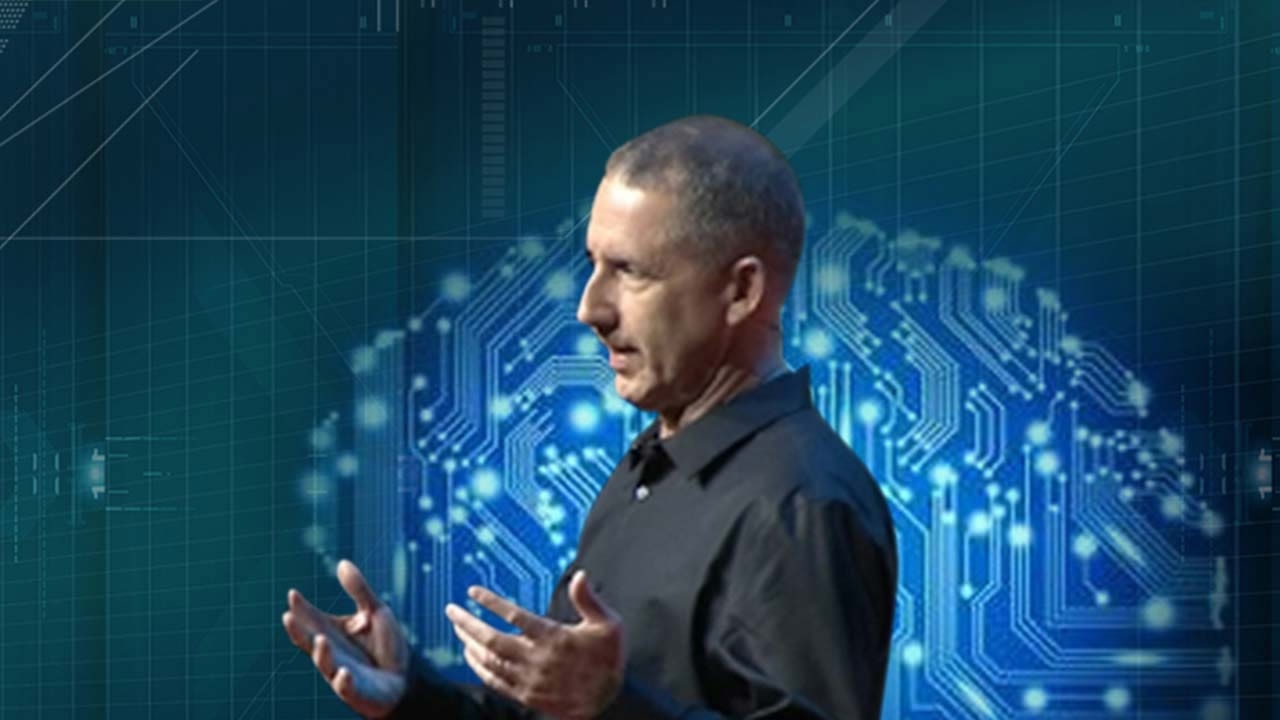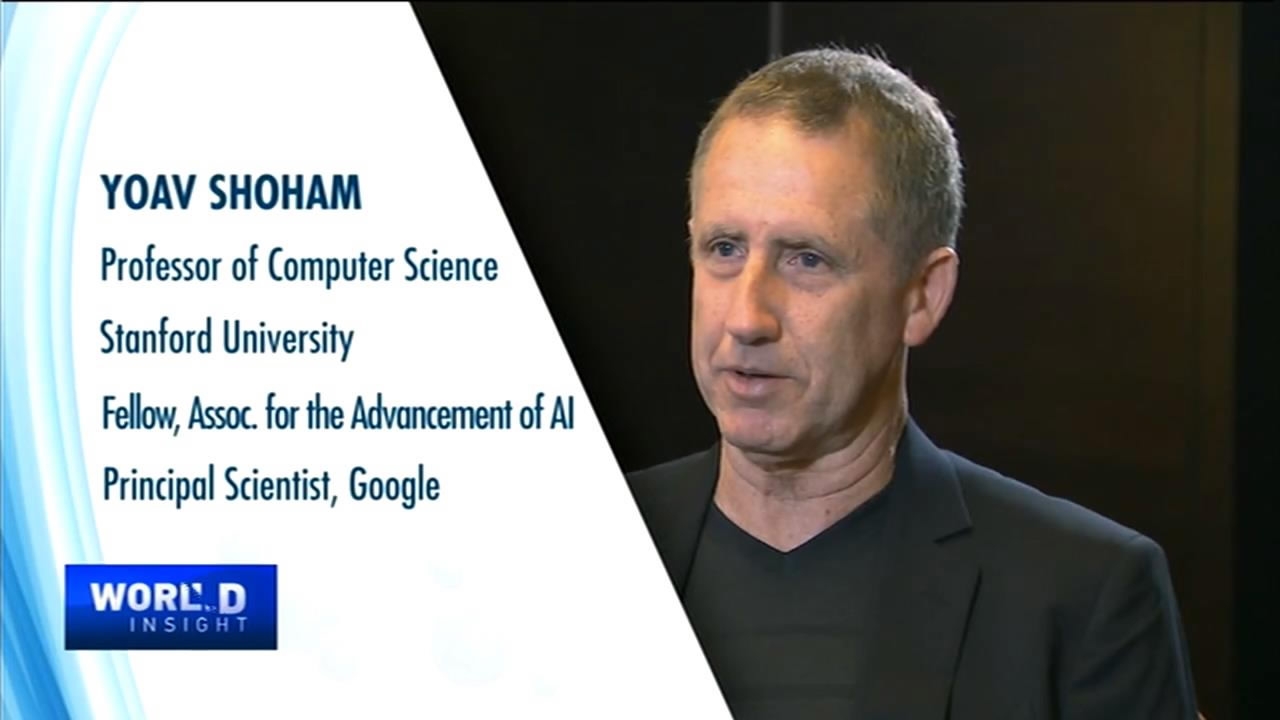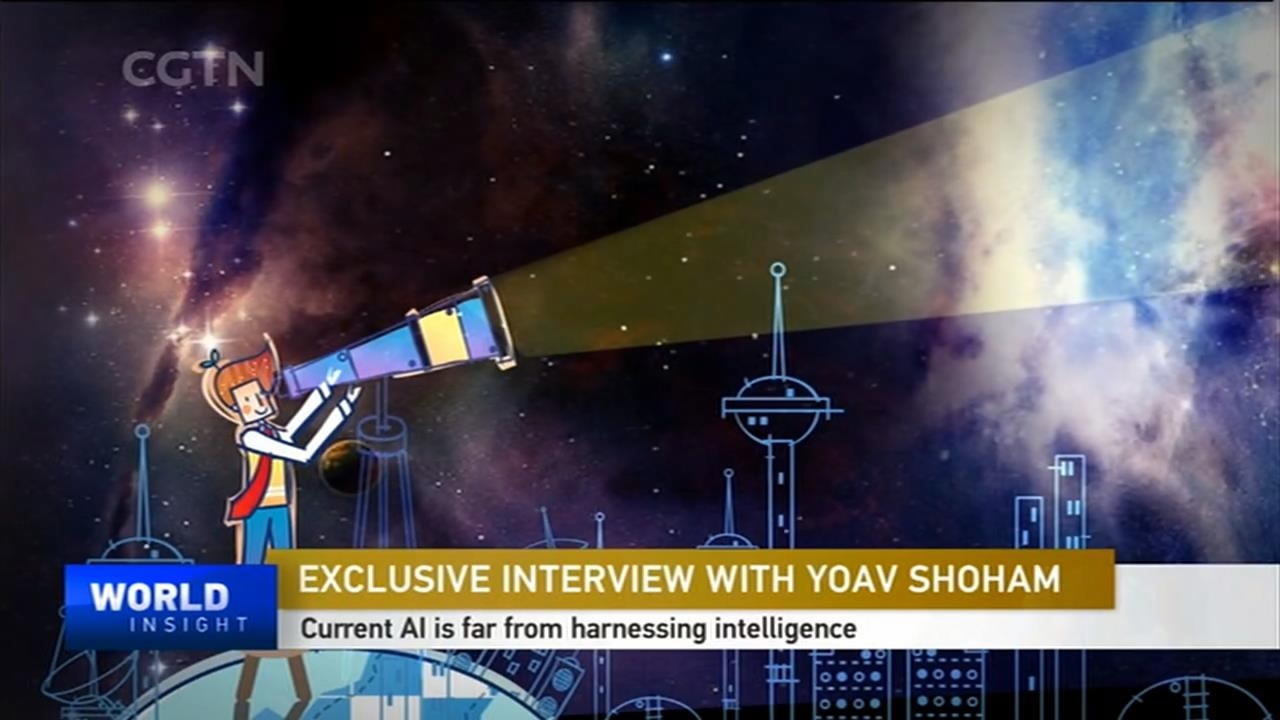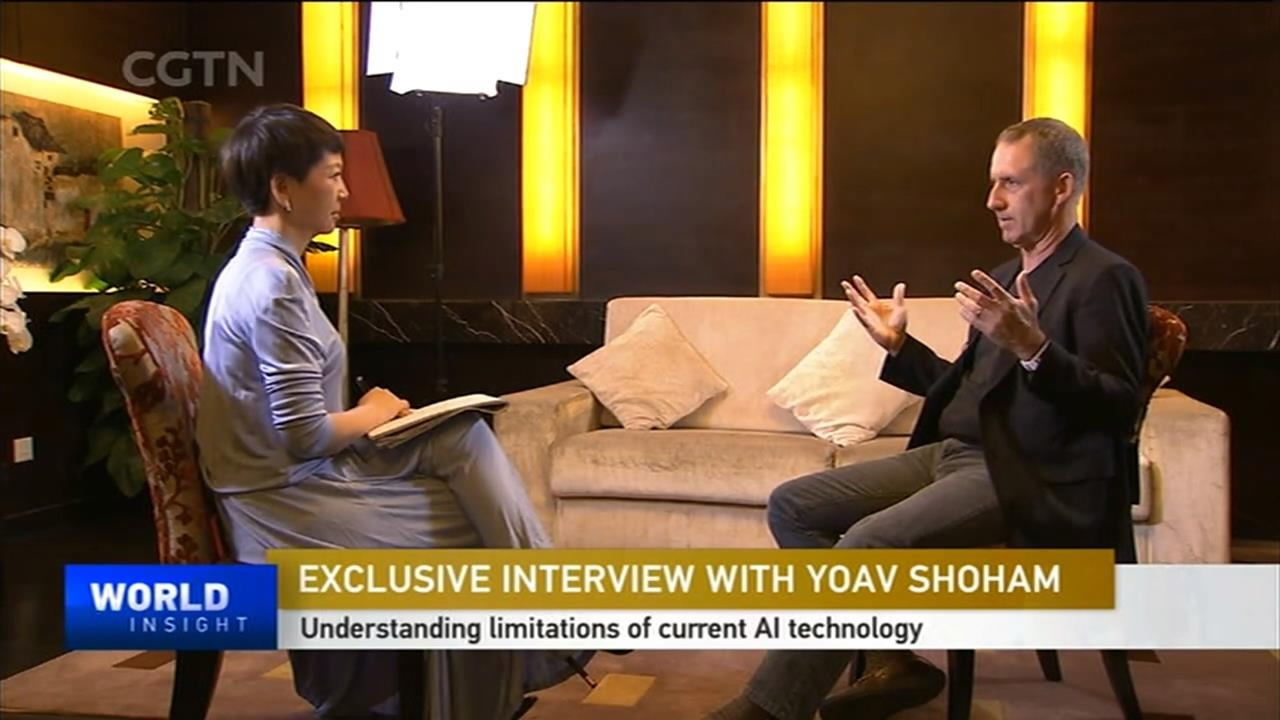
Tech & Sci
08:38, 25-May-2017
Exclusive: Computer scientist Yoav Shoham on AI development

By CGTN’s Tian Wei & Ding Dai
AlphaGo has defeated Ke Jie, the world’s number one Go player, in the first game of a three-part match, amazing the world yet again by the development of AI. The progress past decades have witnessed made AI fans believe robots are becoming closer to real human beings. Tech giants, such as Microsoft and Google, are shifting their strategy from "mobile first" to "AI first". However, aside from products integrating AI technologies, people are still waiting to see how AI can impact their lives.

CGTN Photo
CGTN Photo
CGTN’s Tian Wei sat down with Yoav Shoham, professor of Computer Science at Stanford University and a Principal Scientist of Google, to discuss AlphaGo and AI technology.
Shoham said that for all its successes, AI is still far away from capturing intelligence.
“I often like to have this picture in mind, it’s a cartoon I saw when I was young, of a kid standing – looking at the stars – with a telescope but standing on a little chair to get closer to the stars. And, that’s what AI is. The stars are intelligence. The chair is current-day AI machine learning,” he said.

CGTN Photo
CGTN Photo
Shoham noted that AI is dominated by machine learning and statistical methods, and at heart, it is very good at detecting patterns. The prime example is image recognition. However, the limitation of AI is the judgement of common sense.
“I’ll give you an example. Your kid comes from school and he says ‘mommy, Danny hit me at school so I hit him back. But the teacher didn’t see that he hit me but she saw me hitting him so she punished me but that’s not fair.’ Every kid understands what this is. No computer can even begin to understand this.”
He also expected that people will see a qualitative improvement of AI within 10 years. He noted that “the interesting thing is some of the work done in the 1980s is still very relevant because those were trying to capture common sense notions and now we have an opportunity to marry those insights and modern day technology.”

CGTN Photo
CGTN Photo
But the lines between the machine and the person are going to be blurred, according to Shoham. “We’re going to have brain-machine interfaces so I would, just by thinking, speak with data centers. And, my blood will carry thousands of nano computers that cure disease and do various things to me. That is one reason why thinking machines will take over is not scary because we and machines will be one entity.”

SITEMAP
Copyright © 2018 CGTN. Beijing ICP prepared NO.16065310-3
Copyright © 2018 CGTN. Beijing ICP prepared NO.16065310-3